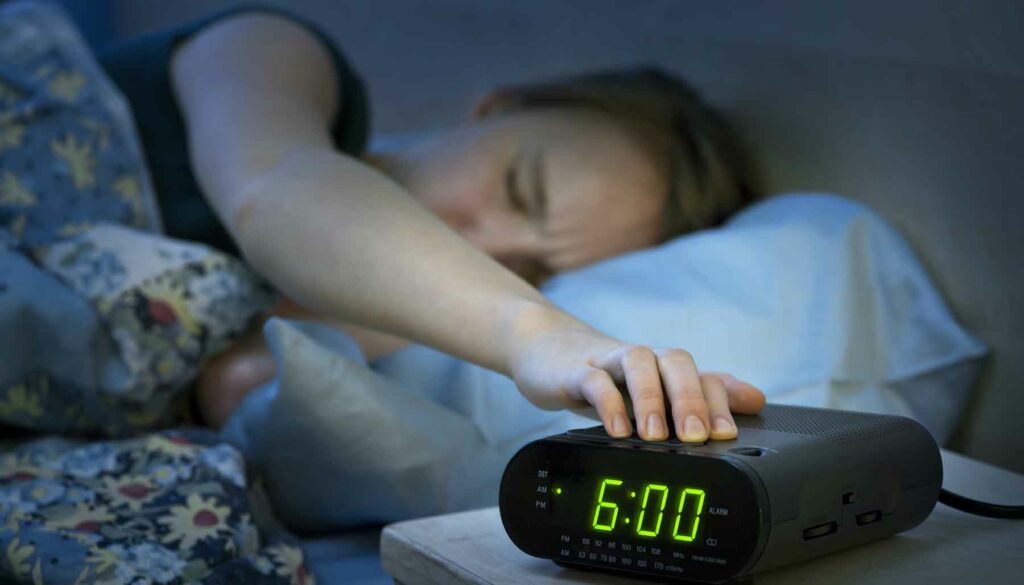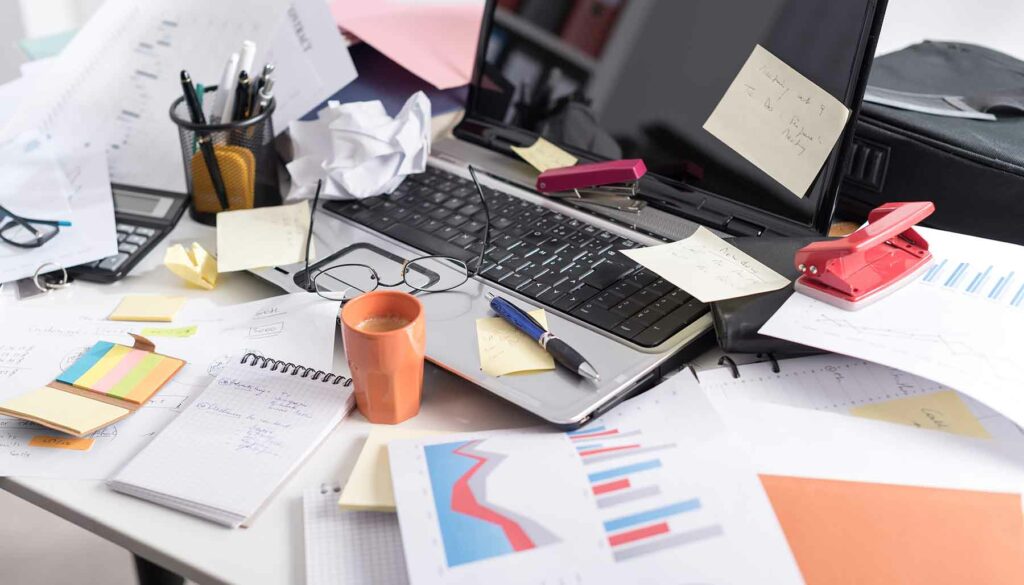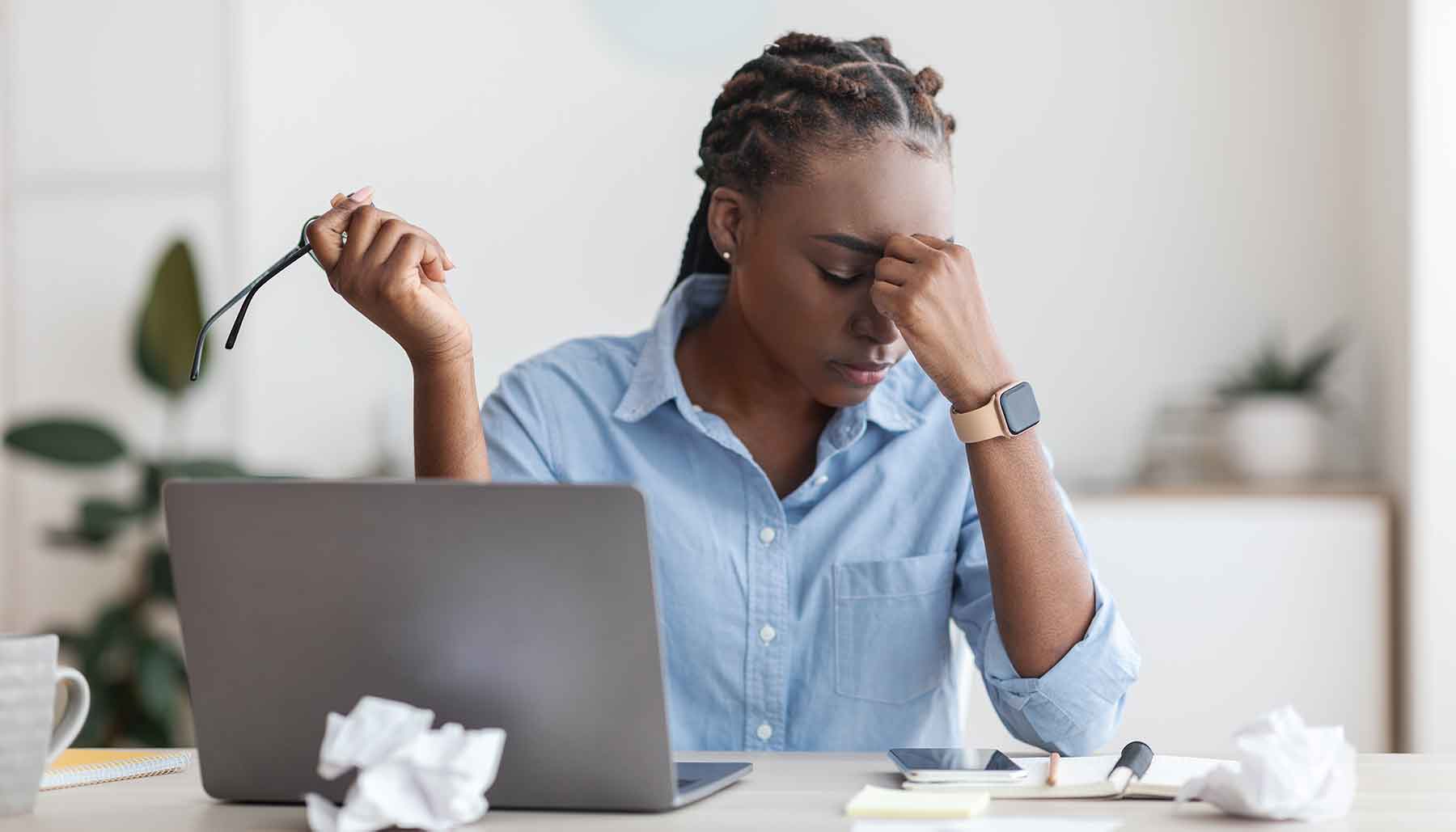Most of us spend a lot of time at work.
It’s not usually because we want to spend all that time at work (although there are some of us who really love our jobs). It’s really the only way to afford all the fun stuff! Oh, and it’s usually good to pay bills, too.

So we head off to work (or our home office), and we are there for several hours. If you love your job, that’s great! There is probably not a whole lot I can tell you to improve on that. But if you find that your job is really stressful, it’s probably not your favorite place to go for eight hours a day.
Sure, with some careers, stress is just part of the job. But your day should never leave you feeling overworked, frazzled, burnt out, or stressed to the max. After a while, that can really start to weigh on you, and the results might affect you more than just mentally. Too much stress on a daily basis will start to hurt your physical well-being, too. It will leave you fatigued, disrupt your sleep, and even raise your blood pressure.
The first solution anyone might offer up? Quit! And while that might be a great way to ditch the stress, it’s not exactly feasible for everyone. Remember those bills I mentioned paying? That’s why doing your best to curb the stress might be a better option for some people, at least for a while. If anything, think of it as a way to buy yourself some time while you work on that resume.
I’ve got a few suggestions on how to bring the stress levels down at work. Things you can do before you arrive, tips for during your time at work, and even things to do after the workday is through. These tips won’t fix everything, and they definitely won’t fix a toxic work environment! But hopefully, they might provide some stress relief for folks.
Start on the Right Foot

A stressful morning routine can and will be the first step toward ruining your day.
Think about your morning routine for a minute. Do you hit the snooze button several times and have to rush out the door with coffee and no breakfast? Then it’s time to combat tons of traffic, just so you can arrive at work with no time to spare. If your morning routine is stressful before you even arrive at the office, how can you expect to not be stressed while at work?
It can make a huge difference in your work day to start on the right foot with a better morning routine. If you don’t have a lot of time, it can be helpful to lay out your work clothes the night before. On Sunday evening before the work week starts, try prepping easy breakfast foods that you can just grab and go. If possible, try to leave for work a few minutes earlier, so that you won’t be so stressed when you get stuck in traffic. And whatever you do, do everything you can to not hit that snooze button!
Related: Smoothie Bowl Recipes Guaranteed to Improve Your Breakfast Experience
Stay Organized

I am absolutely guilty of this myself, so no judgement here… but you’re going to have to organize whatever that mess is on your desk. It can be pretty difficult to keep everything in its place when you’re slammed with work that needs to get done. Eventually, all the papers, pens, trash, and coffee cups start adding up.
Nothing will stress you out more than a desk (or entire office) that looks like a hurricane hit it. Visually, a cluttered desk is going to be distracting and can make you feel anxious. Disorganization can also make it harder for you to work efficiently and can cut into your productivity. Staying organized can also save you time if you need to be able to find things throughout the day, such as files, important documents, or even office supplies.
No More Multitasking
Multitasking sounds like the perfect way to maximize your time and get more done, right? As it turns out, it does kind of the opposite.
Most people can’t multitask and maintain their normal quality and efficiency. It might work for a brief period of time, or with particular tasks – but in general, multitasking is just a fancy way of saying you’re giving 50% to two different tasks, instead of 100% to each of them. And eventually, trying to multitask all the time will leave you frazzled and burnt out.
Instead, try focusing on the task at hand and doing one important thing at a time. You will probably find yourself way more efficient this way. And more importantly, it’ll make you feel less frazzled.
Do Not Skip Lunch

It seems a little counterintuitive, but if you want to feel less stressed and accomplish more, you have to take breaks. This includes small breaks throughout the day, and it absolutely includes taking a full lunch break.
It’s pretty easy to get caught up in work and keep pushing through it until the end of the day. Don’t want to lose that steam, right? Or, if you find yourself slammed with tasks, it can seem like a good idea to work through your lunch break to make sure you get enough done.
Eventually, never taking breaks will result in the dreaded burnout and stress. Instead, you should schedule breaks for yourself throughout the day. It doesn’t necessarily need to be a long break. It could just be a scheduled time to stand up and stretch your legs, take a walk down the hall to grab a snack, or just sit and do a breathing exercise.
As for lunch, you should always walk away from your desk for a proper lunch break. The actual eating part is important because you need to refuel your energy. However, you also need to step all the way away from your desk and your work to let your brain rest.
Set Those Boundaries
Look, I get it. I have coworkers that I really like, and I never want them to feel like I’m letting the team down. You want to show up early, work through lunch, pick up extra tasks, and answer those work emails 24 hours a day for the team.
But in reality, you have to have to set boundaries between your work life and your personal life. These boundaries can be crucial in keeping a flood of stress from taking over. Because eventually, all that extra work is going to easily turn into the status quo, and you’re going to be expected to perform like that forever.
There is a reason why work days are only so long each day. You need time for fun activities, friends and family, and time to take care of yourself. When you clock out, you need to really clock out. Go do things that you enjoy, and respond to those work calls when you’re at work. It’s going to help keep you from burning out.
Eliminate Interruptions
While at work, you are likely getting interrupted several times a day. Interruptions are something of an archenemy of concentrating. You end up distracted for however long the interruption lasts, and then you spend more time trying to get back on track than actually getting things done.
It may not always be possible to eliminate interruptions, but you can try to control them with a few simple gestures to let those around you know that they shouldn’t bother you if it isn’t necessary. Set up office hours specifically for talking in person, close your office door when you need to focus, and don’t respond to non-urgent emails or texts when you are in the middle of something important.
Take Care of Yourself

It’s incredibly hard to not feel stressed if you’re feeling tired, run-down, sick, or hungry. Make sure that you are taking good care of yourself outside of work, so that you can do your best while you are at work.
It’s easy to stretch yourself too thin with activities and obligations during your non-working hours, but sometimes you just need to take some time to focus on yourself. Learn to say “no” sometimes so that you can have actual downtime and decompress.
Eat Healthy and Get Enough Rest

There’s absolutely nothing wrong with enjoying junk food or staying out late to see a concert that you’ve been dying to see. But hey, all things in moderation. If you constantly eat poorly, or if you consistently stay up too late and don’t get enough sleep, you’re just setting yourself up for a stressful workday.
Our health directly affects our moods. If you do not properly take care of yourself, it can leave you irritable, fatigued, and anxious. You’ll quickly find that you end up unable to concentrate and get things done. It can even start contributing to physical symptoms like stomach aches, muscle tension, or headaches.













